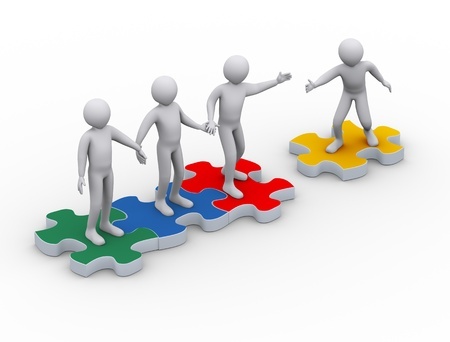Last week we discussed diagnosing Anxiety and Panic moods. Today we're going to discuss how to diagnose Depression and Mania.
We'll still be using The Feeling Good Handbook by Dr. David D. Burns M.D.
I can't say enough about The Feeling Good Handbook. It's filled with great information and lots of exercises to help you understand your moods and how to evaluate them and what to do to adjust them.
There are several types of depression. You may check below to see if any of them fit your symptoms.
Major Depressive Episode
In a major depressive episode, a person feels sad or experiences a loss of interest in pleasurable activities for at least a two- to four - week period. In addition, there are several of the following symptoms:
Many people with these symptoms do not realized they are depressed. They may feel convinced they are inferior and that life is not worth living.
Dysthymic Disorder
This is an extremely common milder form of depression which lasts for two years or more. People with this problem tend to be chronically unhappy for much of their lives, but their depression is not severe enough to qualify as a major depressive episode.
Bipolar Disorder
Bipolar Depressions have "Two Poles", highs and lows. A person may go down into a deep depression, and then at other times may suddenly develop an abnormal and potentially dangerous mood elevation. The bipolar disorder has also been called manic-depressive illness, because it swings from mania to depression and back again.
Manic episodes usually develop rather unexpectedly in individuals who were quite normal before the episode began. The symptoms are just the opposite of the symptoms of depression.
They feel so good that they cannot accept the idea that there may be something wrong or that they need treatment.
Cyclothymic Disorder
These are people whose personality runs hot and cold. At times they are turned on by life, perhaps excessively so--and at times they are overly negative, pessimistic, and discouraged. They never seem to find the middle ground.
Cognitive therapy is based on the idea that distorted thoughts, and not realistic ones, lead to unhealthy negative emotions like depression and anxiety. When you learn to think about your problems in a more positive and realistic way, you can change the way you feel.
In our next blog, we'll discuss should you change the way we feel?
Reference: The Feeling Good Handbook by Dr. David D. Burns M.D.
Copyright: xochicalco / 123RF Stock PhotoWe'll still be using The Feeling Good Handbook by Dr. David D. Burns M.D.
I can't say enough about The Feeling Good Handbook. It's filled with great information and lots of exercises to help you understand your moods and how to evaluate them and what to do to adjust them.
There are several types of depression. You may check below to see if any of them fit your symptoms.
Major Depressive Episode
In a major depressive episode, a person feels sad or experiences a loss of interest in pleasurable activities for at least a two- to four - week period. In addition, there are several of the following symptoms:
- loss of appetite (or eating too much)
- trouble sleeping at night (or sleeping to much)
- feelings of agitation and extreme restlessness (or feeling dull, fatigued, and slowed down)
- feelings of worthlessness or guilt
- difficulties concentrating
- thoughts of death
Many people with these symptoms do not realized they are depressed. They may feel convinced they are inferior and that life is not worth living.
Dysthymic Disorder
This is an extremely common milder form of depression which lasts for two years or more. People with this problem tend to be chronically unhappy for much of their lives, but their depression is not severe enough to qualify as a major depressive episode.
Bipolar Disorder
Bipolar Depressions have "Two Poles", highs and lows. A person may go down into a deep depression, and then at other times may suddenly develop an abnormal and potentially dangerous mood elevation. The bipolar disorder has also been called manic-depressive illness, because it swings from mania to depression and back again.
Manic episodes usually develop rather unexpectedly in individuals who were quite normal before the episode began. The symptoms are just the opposite of the symptoms of depression.
- feeling joyous
- enjoy unlimited self-esteem
- believe they can achieve anything
- suddenly feel brilliant
- alert
- creative
- euphoric
- fountain of energy and ideas
They feel so good that they cannot accept the idea that there may be something wrong or that they need treatment.
Cyclothymic Disorder
These are people whose personality runs hot and cold. At times they are turned on by life, perhaps excessively so--and at times they are overly negative, pessimistic, and discouraged. They never seem to find the middle ground.
Cognitive therapy is based on the idea that distorted thoughts, and not realistic ones, lead to unhealthy negative emotions like depression and anxiety. When you learn to think about your problems in a more positive and realistic way, you can change the way you feel.
In our next blog, we'll discuss should you change the way we feel?
Reference: The Feeling Good Handbook by Dr. David D. Burns M.D.



Impressive and powerful suggestion by the author of this blog are really helpful to me. we provide ketamine denver at affordable prices. for more info visit our website.
ReplyDelete